Our Directors
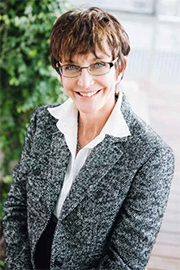
Brenda Andrews, PhD
University Professor C.C., FRSC
Charles H. Best Chair of Medical Research
University of Toronto
Brenda Andrews is the Charles H. Best Chair of Medical Research, Director of the Donnelly Centre for Cellular and Biomolecular Research and Professor of Molecular Genetics at the University of Toronto.
Dr. Andrews completed her PhD in Medical Biophysics (with Paul Sadowski) at the University of Toronto, and postdoctoral training in genetics with the late Dr. Ira Herskowitz at the University of California San Francisco.
In 1991, Dr. Andrews was recruited to the Department of Medical Genetics (now Molecular Genetics) at the University of Toronto. She became Chair of the Department in 1999, a position she held for 5 years before assuming a position as Chair of the Banting & Best Department of Medical Research and as the inaugural Director of the Donnelly Centre. Dr. Andrews’ current research interests include analysis of genetic interaction networks in budding yeast and mammalian cells, using high through-put genetics platforms that include high content microscopy for systematic analysis of cell biological phenotypes. Dr. Andrews is a Companion of the Order of Canada, an elected Fellow of the Royal Society of Canada, the American Association for the Advancement of Science and the American Academy of Microbiology. She joined the BWF Board in October 2019.
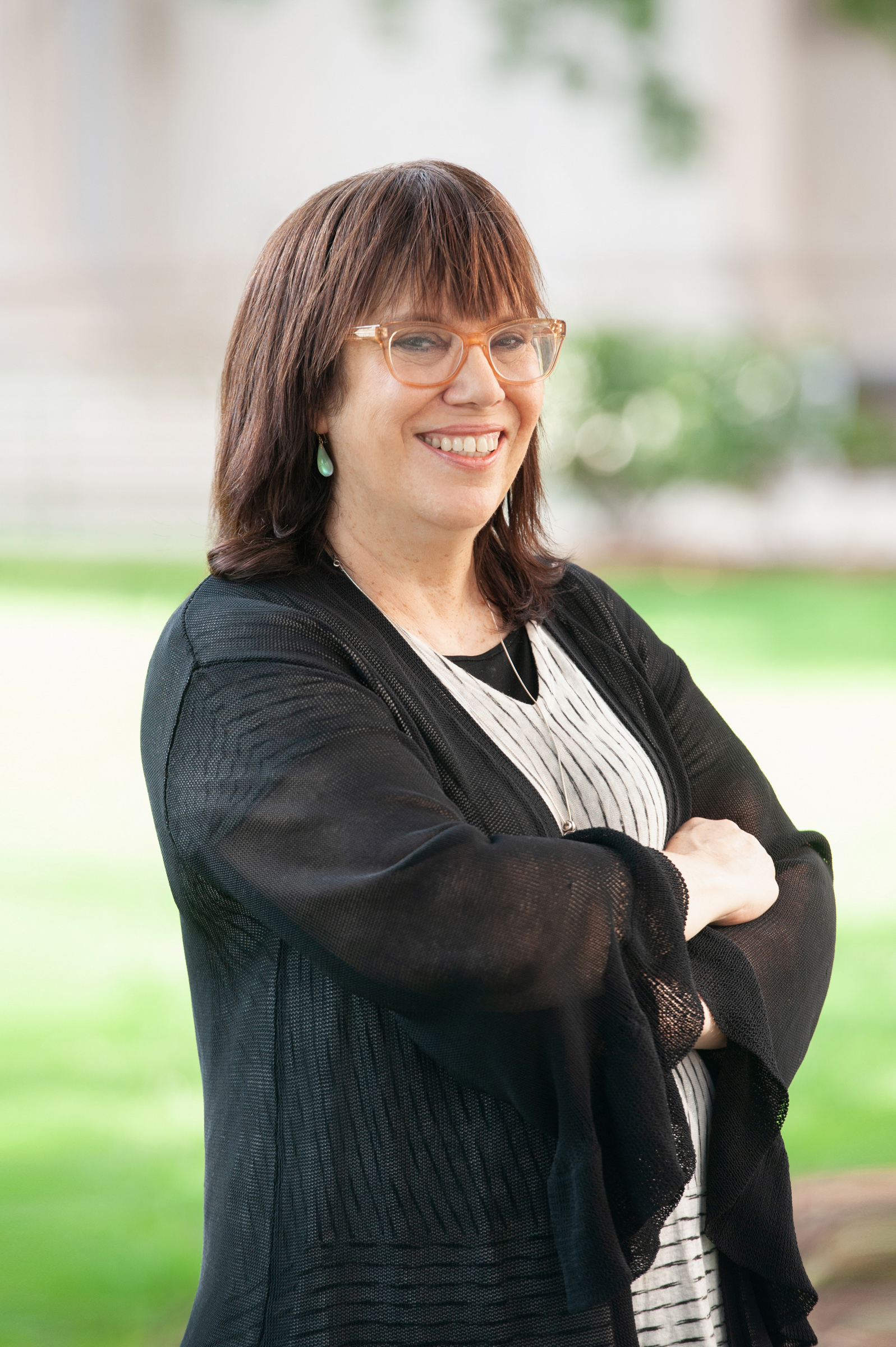
Deborah Blum
Knight Science Journalism Program Director
Massachusetts Institute of Technology
Deborah Blum, director of the Knight Science Journalism program at MIT, is a Pulitzer-Prize winning science journalist, columnist, and author of six books, most recently, The Poison Squad, a 2018 New York Times Notable Book, and the subject of a 2020 PBS documentary. She is co-editor of the 2022 book, A Tactical Guide to Science Journalism, published by Oxford University Pres in June.
Blum won the Pulitzer in 1992 for a series on primate research that became her first book, The Monkey Wars. She has since focused on key moments in the history of science with books including Love at Goon Park (2002), Ghost Hunters (2006), the New York Times bestseller, The Poisoner’s Handbook (2010). A co-editor of A Field Guide for Science Writers (2006), she is now under contract with Oxford University Press as a co-editor of a forthcoming guide to science journalism. She has worked as a science columnist for The New York Times, a blogger for Wired, and has written for publications ranging from The Wall Street Journal to Mother Jones. She was the Helen Firstbrook Franklin professor of journalism at the University of Wisconsin-Madison for 15 years before being selected as the fourth director of the Knight Science Journalism Program in 2015. Shortly later, she launched the online science magazine, Undark, which now numbers a readership in the millions and has won numerous national awards, including the George K. Polk Award.
Blum is a former president of the National Association of Science Writers, was a member of the governing board of the World Federation of Science Writers, and currently serves on the board of the Council for the Advancement of Science Writing, and on advisory boards of Chemical & Engineering News, The Scientist and the MIT Museum. She is a fellow of the American Association for the Advancement of Science (AAAS) and a lifetime associate of the National Academy of Sciences (NAS) in recognition of her work in science communication. She joined the BWF Board in October 2022.
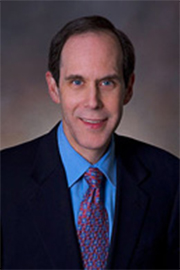
Brian Druker, MD
Director, Knight Cancer Institute at Oregon Health & Science University
JELD-WEN Chair of Leukemia Research
Investigator, Howard Hughes Medical Institute
Brian Druker, MD, revolutionized the treatment of cancer through research that resulted in the first drug to target the molecular defect of cancer while leaving healthy cells unharmed. Marketed under the name Gleevec®, his discovery turned a once-fatal cancer, chronic myeloid leukemia, into a manageable condition.
Treatment with Gleevec received FDA approval in record time, was featured on the cover of Time magazine, and established Druker as a pioneer in the field of precision medicine. Most important, his discovery became a new proof of principal for targeted therapies, spurring the development of more than 50 similar precision therapies for other cancers.
Druker now is applying key principles of precision medicine to early detection. Earlier detection of lethal cancers represents the greatest opportunity to increase cancer survival rates. Thanks to $1 billion in philanthropic funding, Druker is developing a large-scale early detection program that builds upon the scientific strengths of OHSU’s Knight Cancer Institute.
Druker has been recognized with numerous awards, including the Warren Alpert Prize from Harvard Medical School, the Lasker-DeBakey Award for Clinical Medical Research, the Japan Prize in Healthcare and Medical Technology, and most recently, the 2018 Tang Prize in Biopharmaceutical Science. He has been elected to the National Academy of Medicine, the National Academy of Sciences and the American Academy of Arts and Sciences.
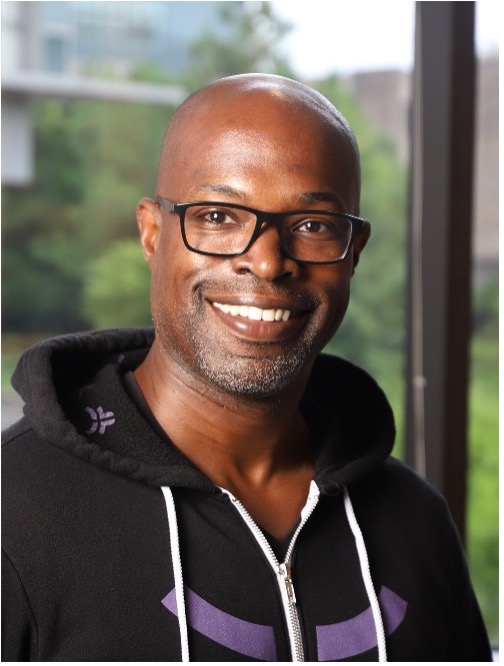
Kafui Dzirasa, MD, PhD
Chief Vision and Values Scientist
A. Eugene and Marie Washington Presidential Distinguished Chair
Department of Psychiatry and Behavioral Sciences
Departments of Neurobiology, Bioengineering, and Neurosurgery
Duke University
Investigator, Howard Hughes Medical Institute
Kafui Dzirasa completed a PhD in Neurobiology at Duke University. His research interests focus on understanding how changes in the brain produce neurological and mental illness, and his graduate work has led to several distinctions including the Somjen Award for Most Outstanding Dissertation Thesis, the Ruth K. Broad Biomedical Research Fellowship, the UNCF·Merck Graduate Science Research Fellowship, and the Wakeman Fellowship. Kafui obtained an MD from the Duke University School of Medicine in 2009, and he completed residency training in General Psychiatry in 2016.
Kafui received the Charles Johnson Leadership Award in 2007, and he was recognized as one of Ebony magazine’s 30 Young Leaders of the Future in February 2008. He has also been awarded the International Mental Health Research Organization Rising Star Award, the Sydney Baer Prize for Schizophrenia Research, and his laboratory was featured on CBS 60 Minutes in 2011. In 2016, he was awarded the inaugural Duke Medical Alumni Emerging Leader Award and the Presidential Early Career Award for Scientists and Engineers: The Nation’s highest award for scientists and engineers in the early stages of their independent research careers. In 2017, he was recognized as 40 under 40 in Health by the National Minority Quality Forum, and the Engineering Alumni of the Year from UMBC. He was inducted into the American Society for Clinical Investigation in 2019, the National Academy of Medicine in 2021, and the American Institute for Medical and Biological Engineering in 2023.
Kafui has served as an Associate Scientific Advisor for the journal Science Translational Medicine, a member of the Congressional-mandated Next Generation Research Initiative, and on the Editorial Advisory Board for TEDMED. He currently serves on the Advisory Committee to the NIH Director.
Kafui is an Investigator of the Howard Hughes Medical Institute and recipient of the NIH Pioneer Award. He is the A. Eugene and Marie Washington Presidential Distinguished Professor at Duke University with appointments in the Departments of Psychiatry and Behavioral Sciences, Neurobiology, Biomedical Engineering, and Neurosurgery. His goal is to combine his research, medical training, and community experience to improve outcomes for diverse communities suffering from Neurological and Psychiatric illnesses.
He joined the BWF Board of Directors in October 2023.
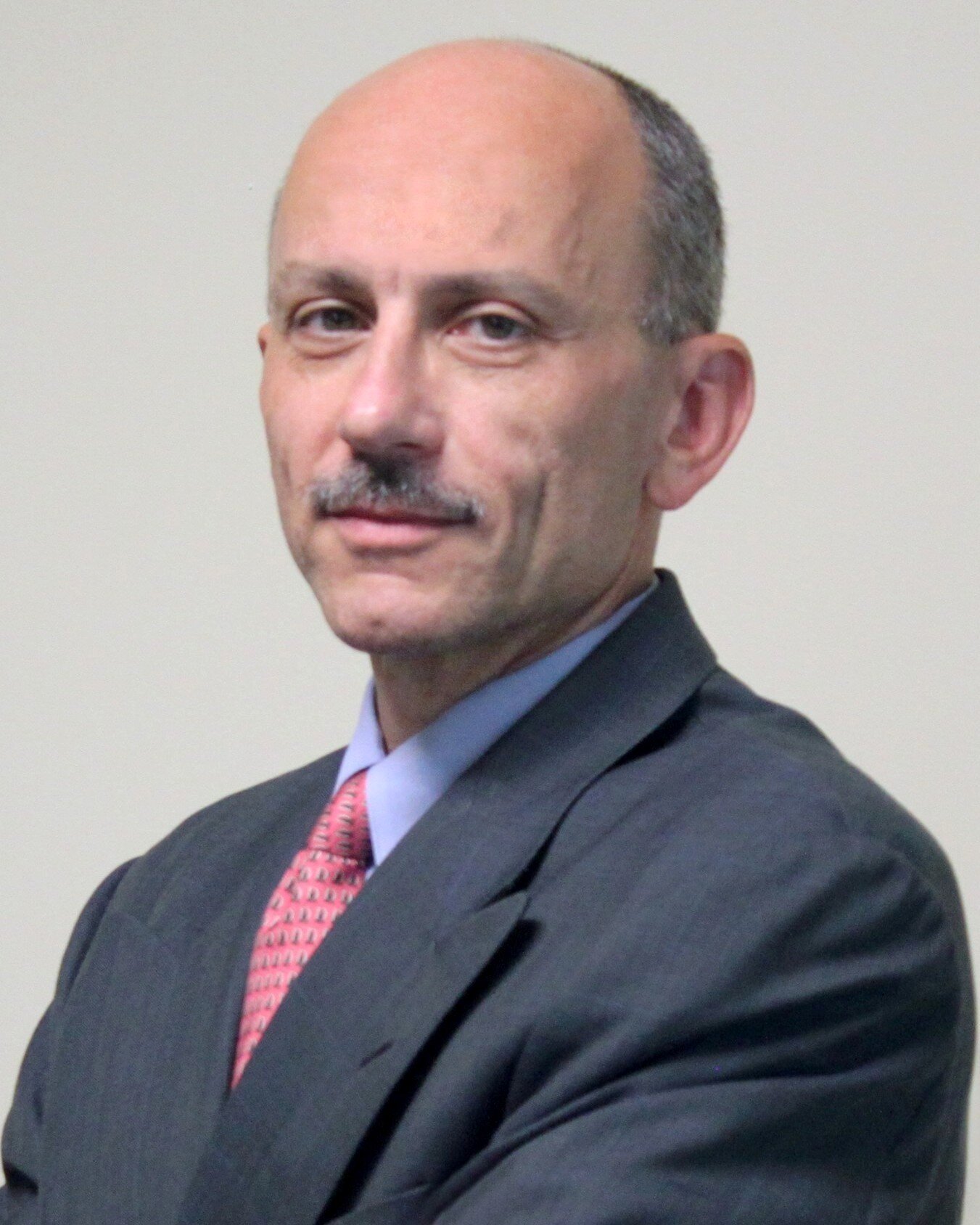
Michael Giarla
Chief Executive Officer from Amundi Smith Breeden LLC. (formerly Smith Breeden Associates)
Retired
Mr. Giarla retired from Amundi Smith Breeden LLC. (formerly Smith Breeden Associates) at the end of 2015 after spending more than 30 years with the asset management firm where he was Chairman and CEO.
Before joining Smith Breeden in 1985, Mr. Giarla was employed in Goldman Sachs & Company’s Equity Strategy Group (led by Fischer Black) in New York.
Mr. Giarla was a member of the Gerontological Research Group (now known as the Marcus Institute for Aging Research) at the HRCA in Boston, MA, from 1976 to 1983. The Group conducted numerous nationwide federally funded studies regarding alternatives to institutionalizing the elderly. Notable among these was the National Hospice Study which supported the 1982 legislation adding hospice benefits to Medicare.
Mr. Giarla holds a Master of Business Administration (1985) with a Concentration in Finance from the Stanford University Graduate School of Business, where he was an Arjay Miller Scholar. He earned a Bachelor of Arts in Statistics, summa cum laude, from Harvard University (1981), where he was elected to Phi Beta Kappa and was a Harvard Club of Boston Scholar.
Over the years, Mr. Giarla has served on the boards of public and private for-profit companies, and not-for-profit organizations.
He is a Founder and Chairman of ConnexMarkets, Inc. a fintech startup domiciled in Connecticut. ConnexMarkets has developed the “common application” that allows small- and medium-sized businesses to apply for bank financing to multiple lenders. Mr. Giarla is a board member of WAM Acquisitions, S.A. a Special Purpose Acquisition Company (SPAC), to be publicly traded on the Amsterdam Stock Exchange, which will invest in the asset management industry.
He is a director of the Center for Community Self Help (Durham, North Carolina) where he serves on the Audit and Strategic Planning Committees. Mr. Giarla is also a Charter Trustee and Chairman of the Board of Trustees of the Roxbury Latin School (Boston, MA), where he chairs the Investment and Compensation committees. Mr. Giarla is also a Trustee of the Hill Center (Durham North Carolina) where he is Treasurer and Chair of the Finance and Investment Committees. He is also a board member and Treasurer of the Core Knowledge Foundation (Charlottesville, VA). Mr. Giarla is a board member, Treasurer and Chairs the Investment and Compensation Committees of Book Harvest, Inc.
Mr. Giarla is an advisory board member of New World Advisors (Hingham, MA).
Mr. Giarla also serves on the investment committee of Judea Reform Congregation (Durham, NC) and the finance and investment committees of Durham Academy (Durham, NC).
Mr. Giarla is a NASM (National Academy of Sports Medicine) Certified Personal Trainer.
He joined the BWF Board of Directors in October 2023.

Paula T. Hammond, PhD
Koch Professor of Engineering
Department Head of Chemical Engineering
Koch Institute of Integrative Cancer Research
Massachusetts Institute of Technology
Professor Paula T. Hammond is the David H. Koch Chair Professor of Engineering at the Massachusetts Institute of Technology, Head of the Department of Chemical Engineering and a member of MIT’s Koch Institute for Integrative Cancer Research. Her research in nanomedicine encompasses the development of new biomaterials to enable drug delivery from surfaces with spatio-temporal control. She also investigates novel responsive polymer architectures for targeted nanoparticle drug and gene delivery.
Professor Paula Hammond was elected into, the National Academy of Science in 2018, the National Academy of Engineering in 2017, the National Academy of Medicine in 2016, and the 2013 Class of the American Academy of Arts and Sciences. Professor Hammond has published over 330 papers, and over 20 patent applications. She is the co-founder and member of the Scientific Advisory Board of LayerBio, Inc. and a member of the Scientific Advisory Board of Moderna Therapeutics.
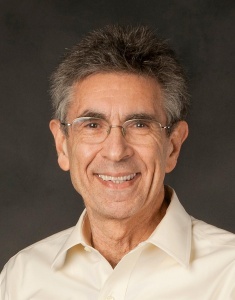
Robert Lefkowitz, MD, PhD
Investigator Howard Hughes Medical Institute
Chancellor’s Distinguished Professor of Medicine
Professor of Biochemistry
Professor of Chemistry
Duke University
Robert Lefkowitz was born on April 15, 1943, in The Bronx, New York.
After graduating from the Bronx High School of Science in 1959, he attended Columbia College from which he received a bachelor of arts in chemistry 1962.
He graduated from Columbia University College of Physicians and Surgeons in 1966 with an M.D. Degree. After serving an internship and one year of general medical residency at Columbia Presbyterian Medical Center, he served as Clinical and Research Associate at the National Institutes of Health from 1968 to 1970.
Upon completing his medical residency and research and clinical training in 1973, he was appointed Associate Professor of Medicine and Assistant Professor of Biochemistry at the Duke University Medical Center. In 1977 he was promoted to Professor of Medicine and in 1982 to James B. Duke Professor of Medicine at Duke University. He is also Professor of Biochemistry and Chemistry. He has been an Investigator of the Howard Hughes Medical Institute since 1976 and was an Established Investigator of the American Heart Association from 1973-1976.
He has served as President of the American Society for Clinical Investigation and of the Association of America Physicians, and on the Council of the USA National Academy of Sciences.
In 1988, he was inducted into both the National Academy of Sciences and the American Academy of Arts and Sciences, and in 1994, he was elected to the Institute of Medicine of the National Academy of Sciences.
Lefkowitz has received many awards for his work on cellular receptors, including the Gairdner Foundation International Award (1988), the Association of America Medical Colleges’ Biomedical Research Award (1990), the American Heart Association’s Basic Research Prize (1990) and its Research Achievement Award (2009), the Bristol-Myers Squibb Award for Distinguished Achievement in Cardiovascular Research (1992), the National Academy of Sciences’ Jessie Stevenson Kovalenko Medal (2001), Fred Conrad Koch Award of The Endocrine Society (2001), and five honorary doctorates. In 2007 he received the Albany Medical Center Prize in Medicine and Biomedical Research and The Shaw Prize in Life Science and Medicine. He received the 2007 National Medal of Science, presented by President George W. Bush on Sept. 29, 2008, in a White House ceremony and the Nobel Prize in Chemistry in 2012.
He joined the Burrough Wellcome Fund Board of Directors in October 2019.
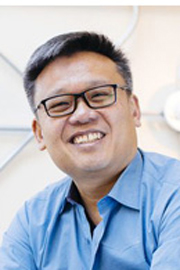
Wendell Lim, PhD
Professor and chair, Department of Cellular and Molecular Pharmacology
University of California – San Francisco
Howard Hughes Medical Institute Investigator
director, UCSF Center for Systems & Synthetic Biology
Wendell Lim, PhD, is interested in understanding how genetically encoded molecular programs can yield the remarkable behaviors observed in biological organisms, at multiple scales. He received his undergraduate degree at Harvard University and a doctoral degree at MIT, as well as completing a postdoctoral fellowship at Yale University. Now chair and professor of cellular and molecular pharmacology at UC San Francisco, Lim began his research career as a biophysical chemist and structural biologist studying problems such as the evolutionary optimization of enzymes, how protein structure is encoded in sequence, and the determinants of protein-protein interaction specificity. His research has gradually shifted towards utilizing this mechanistic understanding of molecules as a foundation to study how systems of interacting molecules assemble to yield cellular or organismal signaling behaviors – complex behaviors in both space and time. His lab is interested in both the fundamental principles governing these molecular programs, as well as the way such programs have evolved. How to identify the most relevant functional modules at various scales of biology is an ongoing but fascinating challenge. We have also become interested in using synthetic biology and our growing understanding of molecular networks to engineer cells with novel behaviors, such as therapeutic immune cells programmed to recognize and treat cancer or other diseases. A Howard Hughes Medical Institute Investigator, Lim is director of the UCSF Center for Systems and Synthetic Biology and is the scientific founder of Cell Design Labs, a company pioneering advanced cell therapies. Dr. Lim joined the Burroughs Wellcome Fund Board of Directors in October 2018.
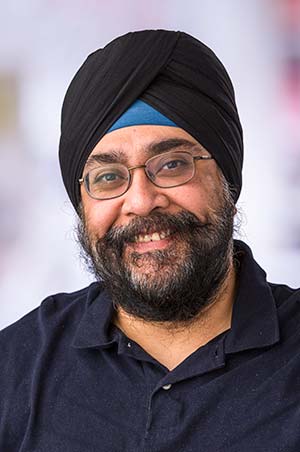
Harmit Malik, PhD
Professor and Associate Director
Basic Sciences Division, Fred Hutch
Howard Hughes Medical Institute Investigator
Harmit Malik got his Bachelors in Technology in Chemical Engineering at the Indian Institute of Technology, Mumbai, India. He then moved to the US to get his Ph.D. in Biology, at the University of Rochester, NY, under the mentorship of Prof. Thomas Eickbush, to work on the evolution of retrotransposable elements. In 1999, he moved to Seattle to the Fred Hutchinson Cancer Research Center (the “Hutch”), to do his postdoc with Dr. Steve Henikoff on the evolution of centromeres and centromeric proteins. Together with Steven Henikoff, he proposed the ‘centromere-drive’ model, which posits that unusual genetic conflicts during meiosis drive the unexpectedly rapid evolution of centromeric DNA and proteins, which in turn may provide a basis of postzygotic reproductive isolation between recently diverged species.
In 2003, he started his lab at the Hutch, where he is currently a Professor and co-Associate Director in the Division of Basic Sciences and an Investigator of the Howard Hughes Medical Institute. Malik and his colleagues have used an evolutionary lens to dissect and discover both primate antiviral and viral adaptation strategies. His lab studies the causes and consequences of genetic conflicts that take place between different genomes (e.g., host-virus interactions, mitochondrial conflicts with nuclear genomes) or between components of the same genome (e.g., chromosomal competition at centromeric regions). He is interested in understanding these “molecular arms races” and how they drive recurrent genetic innovation from the perspective of both evolutionary biology and human disease.
He is the recipient of a Searle Scholar Award (2005), a Burroughs Wellcome Investigator in the Pathogenesis of Infectious Disease Award (2007), a Presidential Early Career Award in Science and Engineering (2007), and the Vilcek Prize for Creative Promise (2010). He was awarded the 2017 Eli Lilly Prize in Microbiology, the most prestigious prize awarded by the American Society of Microbiology, and the 2022 Edward Novitski Prize by the Genetics Society of America. He is a member of the US National Academy of Sciences, and the American Academy of Arts & Sciences, and a fellow of the American Academy of Microbiology and the American Association for the Advancement of Science. He is the former President of the Society for Molecular Biology & Evolution.
He joined the BWF Board of Directors in October 2023.
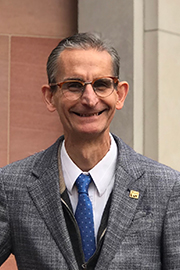
Louis J. Muglia, MD, Phd
President and CEO
Burroughs Wellcome Fund
Louis J. Muglia, MD, PhD, is the President and CEO of the Burroughs Wellcome Fund. a private foundation located in Research Triangle Park, NC.
Prior to joining the Fund, Dr Muglia was the Vice Chair for Research, A. Graeme Mitchell Chair of the Division of Human Genetics, Co-Director of the Perinatal Institute and Director of the Center for Prevention of Preterm Birth at Cincinnati Children’s Hospital Medical Center, and Professor of Pediatrics at the University of Cincinnati College of Medicine.
Dr. Muglia has been involved with the Burroughs Wellcome Fund for more than 20 years. First, as a recipient of a Career Award in the Biomedical Sciences in 1995 from the Fund and then as a member of the Advisory Committee for the Career Awards in the Medical Sciences program. He has also been actively involved in the Reproductive Science funding area, serving on and chairing the advisory committee for the Preterm Birth Initiative.
Dr. Muglia has pioneered advances in analyzing hormones as they relate to the birth process and the maternal genetic response. By analyzing this response, it may help determine whether or not a mother is at risk to deliver a preterm birth or babies born before 37 weeks. Preterm birth is a major health and social challenge since preterm birth may lead to long-term health problems and development difficulties. His group has identified genetic regions in the mother’s genome that affect risk for preterm birth and provide new targets for prevention.
Among Dr. Muglia’s achievements are more than 260 publications and many awards, including a Burroughs Wellcome Fund Career Development Award in the Biomedical Sciences, the Society of Pediatric Research Young Investigator Award, and election to the American Society for Clinical Investigation and Association of American Physicians. Dr. Muglia was also elected as a Fellow in the American Association for the Advancement of Science and to membership in the National Academy of Medicine. He is an active member of the Society for Pediatric Research, Society for Neuroscience, and the Pediatric Endocrine Society. Dr. Muglia served as chair of the Board of Scientific Counselors for the Eunice Kennedy Shriver National Institute of Child Health and Human Development of the National Institutes of Health.
Prior to joining Cincinnati Children’s, Dr. Muglia was Edward Claiborne Stahlman Professor and Vice Chair for Research Affairs in Pediatrics at Vanderbilt University Medical Center, and Alumni Endowed Professor of Pediatrics at Washington University in St. Louis.
Dr. Muglia earned his Doctor of Medicine and Doctor of Philosophy degrees from the University of Chicago. He received a Bachelor of Science degree in biophysics from the University of Michigan.
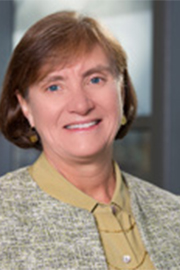
Christine Seidman, MD
T.W. Smith Professor of Medicine & Genetics
Investigator of Howard Hughes Medical Institute
Director, Brigham & Women’s Cardiovascular Genetics Center
Christine Seidman, MD is the Thomas W. Smith Professor of Medicine and Genetics at Harvard Medical School and Brigham and Women’s Hospital. She is an Investigator of the Howard Hughes Medical Institute. She was an undergraduate at Harvard College and received a M.D. from George Washington University School of Medicine. After clinical training in Internal Medicine at John Hopkins Hospital Seidman received subspecialty training in cardiology at the Massachusetts General Hospital.
Seidman practices at the Brigham and Women’s Hospital, where she is the founding Director of the BWH Cardiovascular Genetics Center. Composed of a multidisciplinary team of physicians and scientists, the BWH Cardiovascular Genetics Center provides unparalleled care to patients with cardiomyopathies and their families. Through her translation of basic science discoveries, the BWH Cardiovascular Genetics Center has transformed the clinical diagnosis and management of cardiomyopathies and is defining innovative treatment strategies.
Seidman directs a basic research program that focuses on the discovery of genes, mutations, and mechanisms for human heart muscle disorders, particularly cardiomyopathies and congenital heart defects. Translation of these fundamental discoveries has enabled gene-based diagnosis and novel therapeutic targets. Her accomplishments have garnered many honors, including the Fondation Lefoulon-Delande Le Grande Prix for Cardiovascular Research awarded by the Academie de Science, – Institut de France, Distinguished Scientist Award of the American Heart Association, Fellow of the American Academy of Arts and Sciences, and membership in the National Academy of Medicine and the National Academy of Sciences. Dr. Seidman is also a former president of the Association of American Physicians.

Jenny Ting, PhD (Chair)
William Rand Kenan Professor of Genetics
Immunology Program Leader, Lineberger Comprehensive Cancer Center
Director, UNC Center for Translational Immunology
Co-Director, Institute of Inflammatory Disease
University of North Carolina-Chapel Hill
Dr. Jenny Ting received her Ph.D. in Microbiology and Immunology from Northwestern University in Chicago, IL and postdoctoral training at the University of Southern California and Duke University. She joined the faculty at the University of North Carolina, Chapel Hill as an Assistant Professor and has been there since that time. Currently, she is a William Rand Kenan Professor of Genetics and the UNC Lineberger Comprehensive Cancer Center’s Immunology Program Leader. She is also the Director of the UNC Center for Translational Immunology and the co-Director of the Institute of Inflammatory Diseases.
From 2008 to 2014, she served as the co-Director of the Southeast Regional Center for Excellence in Emerging Infections and Biodefense (SERCEB). She is currently the Program Director of an NIAID-funded Center for Translational Research, NIAID-funded Center for Immune-mediated Viral Control, a National Multiple Sclerosis Society (NMSS) funded Collaborative Multiple Sclerosis Center and an NIH training grant. She has trained more than 90 postdoctoral fellows and students who have gone on to successful scientific careers ranging from deanship, chairmanship, professors and industrial leaders.
Nationally, Dr. Ting has served on multiple NIH advisory boards, as well as committees for the NMSS, Burroughs Wellcome Fund, and American Asthma Foundation. She has been awarded the American Society of Microbiology Award for Outstanding Contributions to the Field of Immunology and Immunity and selected as the 2013 American Association of Immunology prestigious Life Technologies Awardee. She is an elected member of the Academia Sinica in Taiwan and the American Association of Immunologists council.
She has pioneered new areas of innate immunity, most notably reporting the first study describing the entire human NOD-like receptor family and continued to be a leader in this field. Her work combines fundamental innate immunology with molecular biology and she has reported extensively on the impact of innate immunity in infection, autoimmunity, cancer, microbiome composition and metabolic disorders. She has published over 280 articles, many in top journals. She joined the Fund’s Board of Directors in February 2017.
